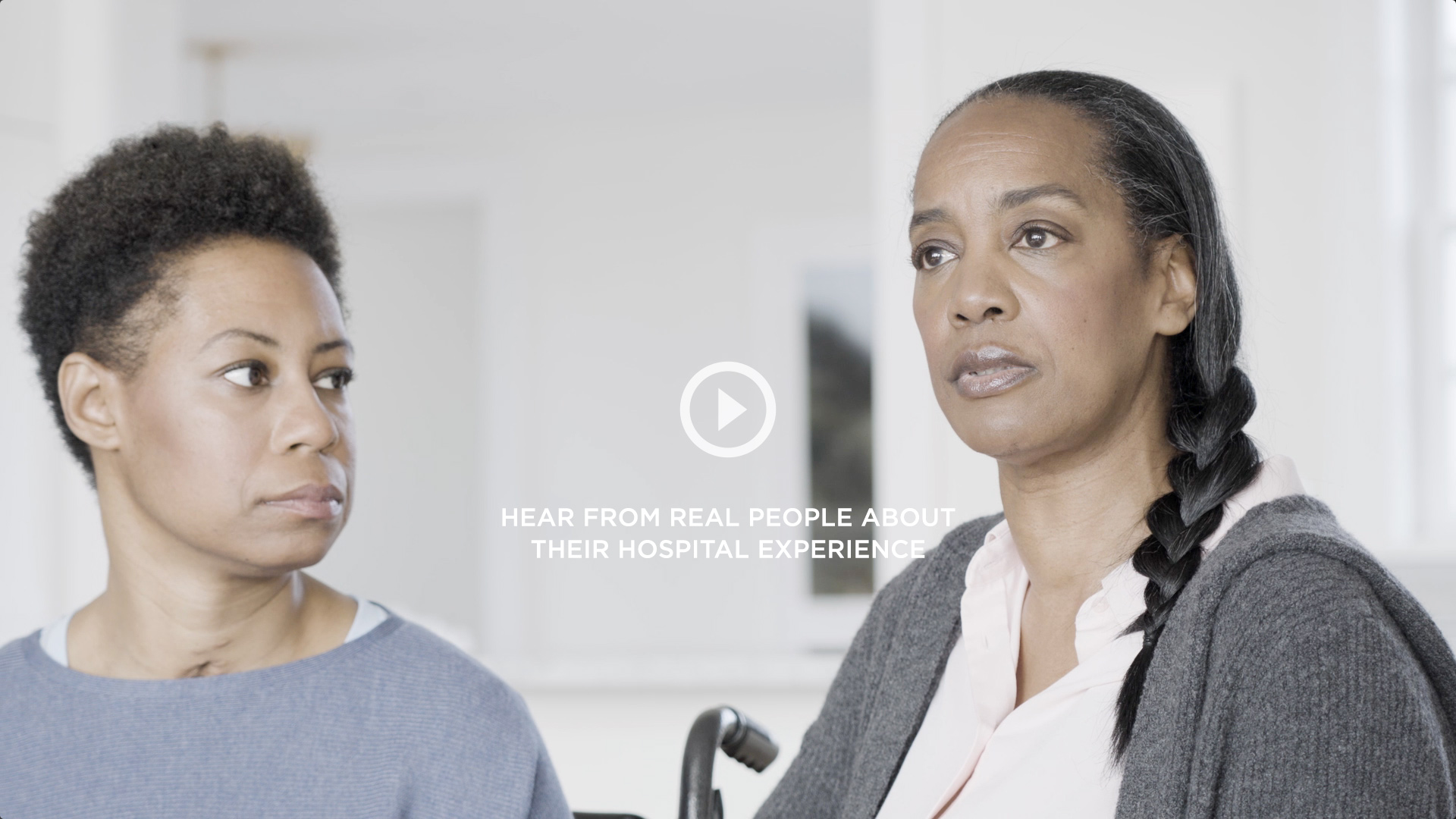Menu
look
Visual things to pay attention to during your loved one’s hospital stay
- Watch out for sores or red, painful skin, especially if your loved one can’t move much
- Be aware of signs of depression or changes in your loved one’s mental activity, which can affect recovery
- Ensure your loved one receives an evaluation by a therapist to determine their needs for inpatient rehab
- Notice if measures are being taken to prevent blood clots, such as medications or compression devices for your loved one’s legs
listen
Instructions and details to make note of during your loved one’s hospital stay
- If possible, have multiple family members present during daily healthcare team visits. This can help you recall information being discussed
- Pay close attention to the therapists (physical, occupational, speech) during their visits and take detailed notes
- Take note of insights the care team shares about helping your loved one with feeding and following a new diet
- Keep an ear out for recommendations on ways to optimize your loved one’s sleep, which is an important part of their recovery
“
IF YOU ASK QUESTIONS, YOU’LL KNOW STEP BY STEP WHAT’S GOING ON.”
–DENESE, CAREGIVER
ASK
Conversations to have during your loved one’s hospital stay
- Get details about your loved one’s stroke (cause, test results, treatment options, prevention)
- Determine if follow-up appointments will be needed to help monitor your loved one’s ongoing health, recovery, and risk of future strokes
- Find out if your loved one can receive medications to help with their recovery, such as antidepressants and stimulants
- Request a social worker or case manager to help plan the journey home—it’s never too early to start this
Do
Tasks to complete during your loved one’s hospital stay
- Ensure your loved one eats well. Good nourishment is always important, but it’s even more important during stroke recovery
- Make a list of questions/concerns and prioritize them. The healthcare team will appreciate this when they come for their daily evaluation/discussion
- Bring in a few family pictures to raise your loved one’s spirits and encourage them during recovery
- Consider steps to help secure your loved one’s future, such as healthcare power of attorney (HCPOA) and a living will
- Before discharge, obtain a prescription for home healthcare (if needed) if you have Medicare coverage
Caution
Talk to a doctor if you notice any of these symptoms in your loved one:
- Muscle stiffness and/or spasms—this could be spasticity
- Muscle weakness
- Pain
- Difficulty with speech or swallowing
- Dizziness or imbalance
- Fatigue

SPASTICITY
spa-STI-suh-tee
Clinical term for muscle stiffness/tightness that may be used by your loved one’s care team.
CAREGIVER MATTERS
Your time at the hospital may be stressful and draining. Support yourself by using this time to:
- ASK FOR HELP Enlist friends and family members to help out and assign them specific tasks
- EDUCATE YOURSELF Learn about your loved one’s condition and write things down
- FOCUS AND RELAX Spend a few minutes each day at the hospital prayer/meditation room
- GRIEVE Allow yourself the opportunity to accept the loss of your former lifestyle/relationship
- FORM CONNECTIONS Research caregiver support groups in your area









